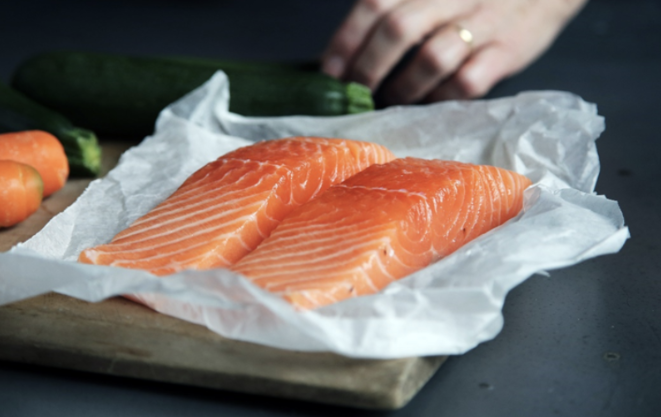Eating habits and psychological well-being are closely connected. Science tells us this.
What we eat has an important beneficial effect on the mental level, as well as, naturally, on the physical level.
We know well that to stay healthy we must pay attention to a correct diet, carry out physical activity, and sleep sufficient hours a night. “ Rules ” that are taught to us since childhood, but which we are not always able to apply consistently.
Whether it’s unhealthy lifestyles, lack of time, malaise, or distractions, more and more people end up neglecting fundamental aspects of self-care. The risk is overload – physical and mental – and the implementation of dysfunctional habits that strongly impact our well-being and the quality of our lives.

A first alarm bell in case of discomfort, stress, or emotional imbalance concerns precisely the sphere of nutrition and our relationship with food.
During difficult or particularly intense periods, it is not uncommon for our eating routine to break down and for unhealthy behaviors to be triggered, such as skipping meals or carelessly eating whatever comes along. On the other hand, the implementation of an incorrect and unbalanced diet can cause physical exhaustion and lack of energy and can be associated with anxiety, low mood, nervousness, and sleep disturbances. A vicious circle, therefore, which in the long run can put our psychophysical well-being to the test.
Nutrition rhymes with emotion
In the literature, it is clear that our emotions also play a very important role in the way we sit at the table. It’s called ” Emotional Eating “.
This term indicates an eating behavior activated when a person responds to an emotionally charged or stressful situation with an uncontrolled and high-calorie way of eating, even in the absence of hunger. In other words, it corresponds to the search for food to seek reassurance and release tension, and distraction.
In this regard, it should be remembered that eating is not only a primary need but is also a source of pleasure. It is therefore easy to fall into temptation and eat in the absence of real hunger. It is no coincidence, therefore, that the foods most sought after in times of despair are generally very palatable and have a high caloric content, such as sweets and carbohydrates.
These foods, as soon as they are eaten, cause an improvement in the psychological condition, as they reduce tension and give a sense of calm, but the sensation is only temporary.
Nutrition and psychological health: the Mindful Eating approach
A useful approach to deal with these situations is that suggested by Mindful Eating, that is, a style of conscious eating. It is a practice closely related to Mindfulness and which enhances awareness in the “here and now”, applied to the sphere of food and nutrition.
According to the practice of Mindfulness, we can experience the benefits of paying attention to the process of eating, to the sensations given by food and chewing, so that the experience of eating acquires much more attention and satisfaction. The invitation, naturally, is to consume meals without distractions due to cell phones and electronic devices, preferring dedicated environments and possibly in the company of other people.
It is increasingly common, however, to find yourself having lunch or dinner watching television, working on the computer, or continuing to think about deadlines and unfinished work issues. Furthermore, we often eat in a hurry and uncomfortable positions, without thinking too much. That is, we eat mindlessly: that is, in a distracted and thoughtful way, rather than in a mindful, attentive, and conscious way.
The concept behind Mindful Eating is precisely this: using the key principles of Mindfulness to experience a conscious relationship with food and our diet, reconnecting with ourselves and what we are tasting.
Five practical suggestions to take care of ourselves and our nutrition, with awareness.
How to take care of yourself and cultivate your psychophysical well-being, starting with nutrition?
Here are five best practices.
1) Enhance your diet
Even in cases of stress, difficulty, and discomfort, it is essential to maintain a healthy, varied, and balanced eating routine. It is therefore essential to eat healthily without skipping meals and neglecting your diet. Lacking energy and motivation, we try to embellish our eating routine. For example, dedicate yourself to preparing a new recipe, cooking a dish discovered during a trip, or experimenting with dishes and products you have never tasted before. In this way, it is possible to make the meal an opportunity to have new experiences and enjoy a moment of pause and relaxation.
2) Eat with all your senses
If there are many emotions and they test us, let’s be careful not to use meal time to calm the sense of discomfort. Rather we wait, and choose to eat in a calmer moment. At the table, try to eat by activating all our senses. Listen, for example, to the sound of the crunchiness of food, notice the colors and aromas of dishes, and savor food with intention.
3) Have good dreams
In addition to nutrition, another important ally of our well-being is sleep. It is no coincidence, therefore, that there is a close and bidirectional relationship between them. Our sleep is (also) the consequence of what we eat, and what we eat influences the way we sleep and rest. This is confirmed by a study published in the Journal of Clinical Sleep Medicine, according to which a controlled diet is associated with a quality night’s rest, while an incorrect or excessive diet is linked to a reduction in slow-wave sleep (the deepest phase of sleep). night rest) and an increase in the time needed to fall asleep. Furthermore, restful sleep promotes the release of leptin, a hormone that regulates the sense of satiety, while in people who sleep little, higher levels of ghrelin, the appetite hormone, are found.
4) “Take regular” physical activity
Nutrition is deeply linked to sports and physical activity. These are two parallel and complementary tracks.
During physical activity, we stock up on endorphins, serotonin, and dopamine, substances that play an important role in regulating mood and which have a profound impact on our mental well-being.
Therefore, dedicate yourself to one or more physical activities that are right for you and choose the sport that most amuse and satisfies you.
If you still don’t know the sporting activity that’s right for you, explore and try it out. Dance, run, swim, bike, or simply walk. There’s no need to run a marathon, it’s better to move little and often. What’s important is that it makes you feel good.
5) Feed your mind
Emotions, experiences, thoughts, and attitudes. It is now clear that nutrition and nutritional styles have a profound effect on our emotional and psychological sphere. In this sense, relying on mental health professionals means being able to undertake paths that allow you to increase self-awareness, your thought patterns, and ways of acting. Knowing ourselves, our emotions, and our way of behaving, also about food.
In addition to this, psychological support and psychotherapy courses are fundamental tools for intervening in cases of eating disorders and enhancing prevention and health promotion plans. So if you need it, ask for help





